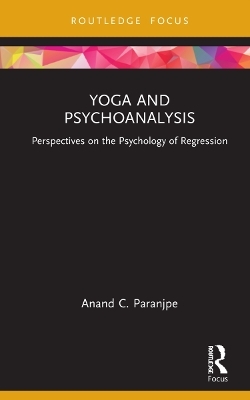
Yoga and Psychoanalysis
Routledge India (Verlag)
978-1-032-24714-4 (ISBN)
Although Freud found the diagnostic benefits in tracing the history of the patients’ early childhood experiences, he also recognized the influences of the history of civilization and evolution. He also viewed the regression to earlier history in a negative light. Ernst Kris, on the other hand, saw some benefits of regression. The nature and extent of the influence of Jewish mysticism on Freud is highly controversial, and scholars have pointed out the possible influence of Kabalarian mysticism, which held that enlightenment follows from going all the way back to the origin of human beings at the beginning of the cosmos. This view has an interesting parallel in Patañjali’s Yoga. This volume highlights these significant parallels in the Indian and the Western systems of knowledge in the study of human psychology and explores the need for their mutual understanding. It also examines converging trends in modern psychology to recognize the need for transcendence of ego in individuals.
This book will be of immense interest to students, teachers, researchers, and practitioners of psychology, psychoanalysis, and Yoga Psychology. It will be of great interest to psychologists, counsellors, mental health professionals, clinical psychologists, yoga enthusiasts, and those interested in transpersonal psychology.
Anand C. Paranjpe obtained his PhD at Pune University and conducted post-doctoral research at Harvard University under a Fulbright and Smith-Mundt grant. In 1967 he started teaching at Simon Fraser University in Canada, where he is currently Emeritus Professor of Psychology and Humanities. He is Fellow of Canadian Psychological Association and of the National Academy of Psychology (India). His major publications include Theoretical psychology: The meeting of East and West (1984) and Self and identity in modern psychology and Indian thought (Plenum, 1998). He co-edited with Professors K.R. Rao and Ajit Dalal the Handbook of Indian Psychology (2008). His more recent publication is a book titled Psychology in the Indian tradition (2016; 2017) which he co-authored with Prof. K. Ramkrishna Rao as its first author. He was invited by the Indian Council of Philosophical Research as National Visiting Professor in 2010-2011 and was recognized as Distinguished Psychologist by the National Academy of Psychology (India) in 2021.
Introduction, 1. The concept of regression in psychoanalysis, 2. Conceptual foundations of Yoga, 3. The concept of prati-prasava: a Yogic view of regression, 4. Patañjali’s view of prati-prasava, continued, 5. Kriyā Yoga, 6. Looking at Freud’s ideas within his cultural context and in an intercultural context, 7. Converging trends of thought within and across cultural traditions, 8. Convergence, complementarity, and conclusion
| Erscheinungsdatum | 17.08.2022 |
|---|---|
| Zusatzinfo | 1 Tables, black and white; 2 Line drawings, black and white; 2 Illustrations, black and white |
| Verlagsort | London |
| Sprache | englisch |
| Maße | 138 x 216 mm |
| Gewicht | 167 g |
| Themenwelt | Geisteswissenschaften ► Psychologie ► Psychoanalyse / Tiefenpsychologie |
| Medizin / Pharmazie ► Medizinische Fachgebiete ► Psychiatrie / Psychotherapie | |
| Sozialwissenschaften ► Soziologie ► Spezielle Soziologien | |
| ISBN-10 | 1-032-24714-2 / 1032247142 |
| ISBN-13 | 978-1-032-24714-4 / 9781032247144 |
| Zustand | Neuware |
| Haben Sie eine Frage zum Produkt? |
aus dem Bereich


